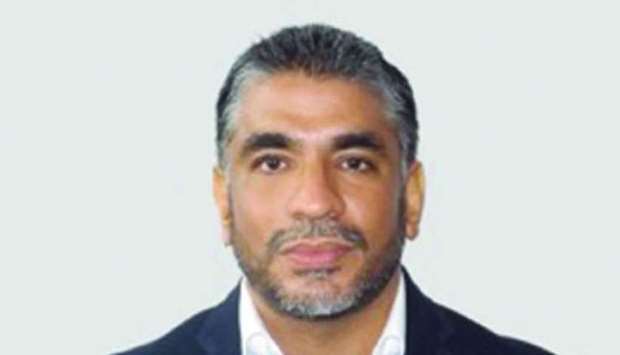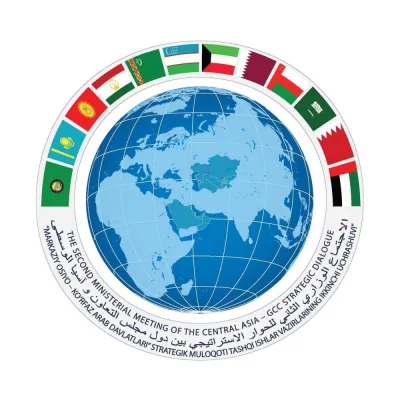A group of British business leaders have written to Prime Minister Theresa May for help ending a Saudi-led blockade of Qatar so UK trade in the Middle East is not damaged post-Brexit.
The heads of 17 of the 622 British-Qatari companies told May that working in Doha meant they were discriminated against by neighbours of the Gulf state.
In June last year, Saudi Arabia, the United Arab Emirates, Bahrain and Egypt launched a diplomatic and transport blockade of Qatar accusing it of cosying up to Iran and supporting terrorism, which Doha denies.
With no end to the blockade in sight, company bosses are increasingly worried about its effect on their businesses.
News of the letter emerged a week after His Highness the Amir Sheikh Tamim bin Hamad al-Thani visited London for talks with Theresa May.
As well as raising the prospect of UK work on the 2022 World Cup, May also talked about trade with the Middle East, which will be important in a post-Brexit world.
In all, there are 622 British-Qatari companies operating in the Gulf state.
The letter, sent by the heads of 17 companies to Downing Street on June 15, said: "As representatives of businesses that work right across the Middle East, we are concerned that were we to do business in Qatar, we may be disadvantaged in UAE or Saudi because of those countries’ blockade.
"We would request that your Government makes every effort to support British business by working with our allies in the region and globally to speedily resolve the ongoing dispute and pressure parties to remove the blockade."
Trade relations
They pointed out that good trading relations between the UK and the Middle East were going to be of paramount importance in the lead-up to Brexit and beyond.
Sandeep Chadha, co-founder of Oakstone Partners, a global corporate advisory firm with a private equity arm, told how he organised the letter after round table meetings in Parliament with business leaders having the same problems as him.
Chadha, whose company is also a debt capital market specialist, added: "Businesses that are exposed to the Middle East, and have operations there, the Saudi and Emiratis have applied pressure for businesses to be reduced if not discontinued with Qatar.
"In the capital markets, for example, when raising money there has been a little bit of to-ing and fro-ing and there has been concern from certain funds and for certain investors that if they invest in Qatari issuances that may have negative impact on relations with the Emiratis and with Saudi – so there is concern that if one shows interest in Qatar then that might have a negative impact on the others.
"The truth cannot be said for the reverse. So, as far as I know, Qatar is not applying pressure and saying you must choose or you must boycott the others."
Chadha recalled being caught up in the drama that accompanied the announcement of the blockade on June 5 last year.
"I was actually in Doha on the day that the blockade was announced and I had to quickly get up from my breakfast table, run to the airport two days earlier than I planned to go and spend half a day in Dubai so I could get back before the last midnight flight."
The upheaval led to him putting the opening of a planned office in Doha on hold due to uncertainty in the region.
Chadha said he believed that as a result the blockade is stopping business relations from being free-flowing.
But he also said the indicator from the number of debt issuances is that the Qatar economy is strong, and not viewed as a large risk by the global investor market.
Thamer al-Thani, UK media attaché for Qatar, said: “Qatar's commitment to bilateral trade with the UK remains as strong as ever. We have created an attractive business climate for UK investors in Qatar and last year committed to an additional £5bn of investment in the UK.
"The concerns raised by British businesses are an example of the global ripple effect caused by reckless policies in the Middle East by the blockading countries.”
In June last year, Saudi Arabia, the United Arab Emirates, Bahrain and Egypt launched a diplomatic and transport blockade of Qatar accusing it of cosying up to Iran and supporting terrorism, which Doha denies.
With no end to the blockade in sight, company bosses are increasingly worried about its effect on their businesses.
News of the letter emerged a week after His Highness the Amir Sheikh Tamim bin Hamad al-Thani visited London for talks with Theresa May.
As well as raising the prospect of UK work on the 2022 World Cup, May also talked about trade with the Middle East, which will be important in a post-Brexit world.
In all, there are 622 British-Qatari companies operating in the Gulf state.
The letter, sent by the heads of 17 companies to Downing Street on June 15, said: "As representatives of businesses that work right across the Middle East, we are concerned that were we to do business in Qatar, we may be disadvantaged in UAE or Saudi because of those countries’ blockade.
"We would request that your Government makes every effort to support British business by working with our allies in the region and globally to speedily resolve the ongoing dispute and pressure parties to remove the blockade."
Trade relations
They pointed out that good trading relations between the UK and the Middle East were going to be of paramount importance in the lead-up to Brexit and beyond.
Sandeep Chadha, co-founder of Oakstone Partners, a global corporate advisory firm with a private equity arm, told how he organised the letter after round table meetings in Parliament with business leaders having the same problems as him.
Chadha, whose company is also a debt capital market specialist, added: "Businesses that are exposed to the Middle East, and have operations there, the Saudi and Emiratis have applied pressure for businesses to be reduced if not discontinued with Qatar.
"In the capital markets, for example, when raising money there has been a little bit of to-ing and fro-ing and there has been concern from certain funds and for certain investors that if they invest in Qatari issuances that may have negative impact on relations with the Emiratis and with Saudi – so there is concern that if one shows interest in Qatar then that might have a negative impact on the others.
"The truth cannot be said for the reverse. So, as far as I know, Qatar is not applying pressure and saying you must choose or you must boycott the others."
Chadha recalled being caught up in the drama that accompanied the announcement of the blockade on June 5 last year.
"I was actually in Doha on the day that the blockade was announced and I had to quickly get up from my breakfast table, run to the airport two days earlier than I planned to go and spend half a day in Dubai so I could get back before the last midnight flight."
The upheaval led to him putting the opening of a planned office in Doha on hold due to uncertainty in the region.
Chadha said he believed that as a result the blockade is stopping business relations from being free-flowing.
But he also said the indicator from the number of debt issuances is that the Qatar economy is strong, and not viewed as a large risk by the global investor market.
Thamer al-Thani, UK media attaché for Qatar, said: “Qatar's commitment to bilateral trade with the UK remains as strong as ever. We have created an attractive business climate for UK investors in Qatar and last year committed to an additional £5bn of investment in the UK.
"The concerns raised by British businesses are an example of the global ripple effect caused by reckless policies in the Middle East by the blockading countries.”



